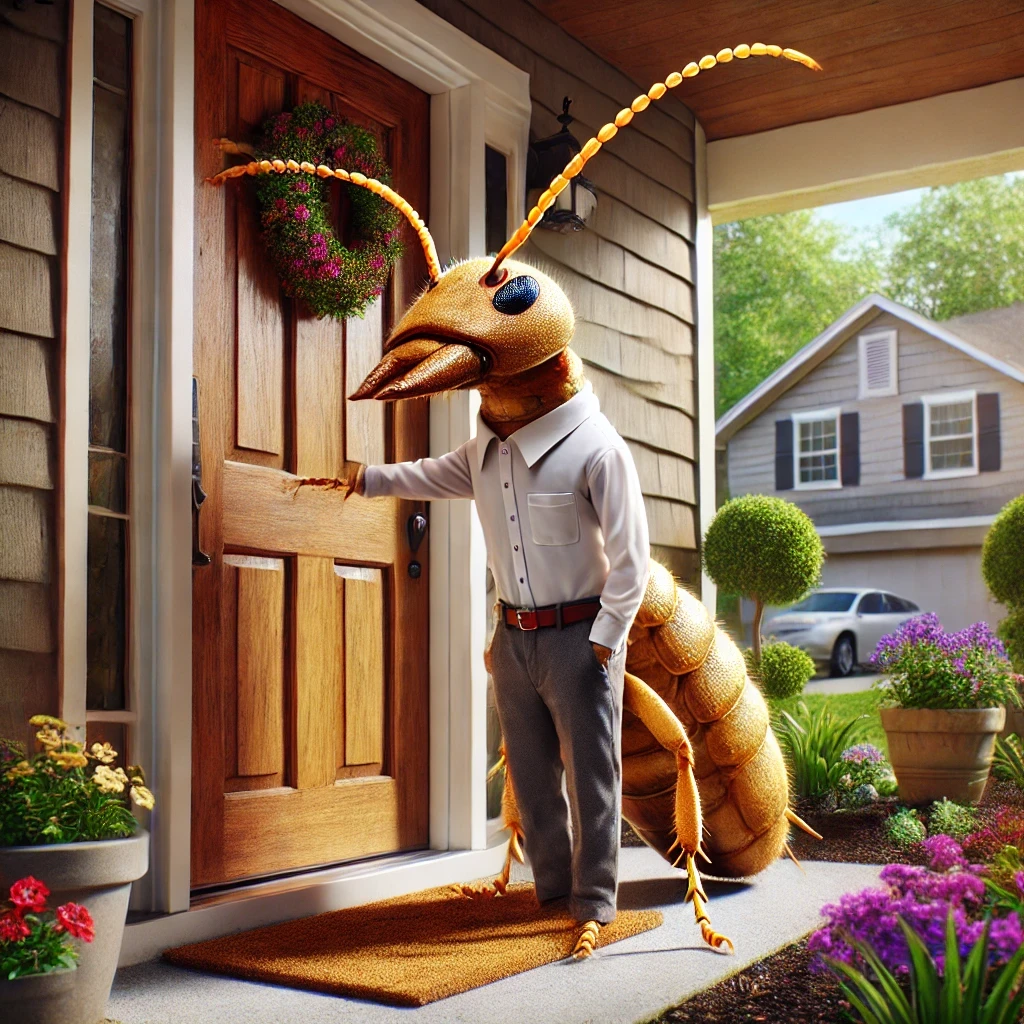7 Ways to Ensure a Bug-Free Summer
We all love St. Louis summers. Sun-drenched days lounging by the pool, backyard barbecues wafting with smoky goodness, and laughter-filled evenings under the stars.
However, these warm months also usher in an unwelcome parade of pests! Fear not, for we have the solutions to help you protect your home and yard from these uninvited guests. If you want a pest-free summer, this is where you should start.
Schedule Routine Pest Inspections
Prevention is the best cure there is. Work with a trusted pest control company to develop a customized plan for your property, and ask them questions. You will get valuable insights and recommendations for maintaining a pest-free environment on your property.
A pest control partner can educate you about what to watch out for in-between visits. Plus their products, tailored for your property, will keep the pests at bay while you enjoy your summer.
Mow, Trim, and Maintain — Meticulously!
Keeping grass and other plants short eliminates hiding spots for insects and rodents, reducing the risk of infestation. Anything overgrown in your yard will harbor mosquitoes, ticks, and other unwelcome insects.
They use overgrown vegetation as breeding ground and hiding spots, which means your gardens are a source of insect infestation. Removing debris, dead plants, and fallen leaves from your garden makes the insects move farther away. A 2-3 inch layer of mulch in your garden beds will also deter insects.
Eradicate Standing Water
Puddles and standing water are a recipe for an out-of-control mosquito population. Mosquitoes require water to lay their eggs and complete their life cycle. That means your No. 1 job in mosquito control is not giving them a place to lay eggs.
Address any areas of poor drainage on your property, using landscaping techniques such as drains, grading or swales to redirect water away from your home. Routinely check for and remove puddles, water in planters, and blocked gutters to ensure a dry environment, especially after heavy rain. If you have a pond, birdbath, or other water feature, make sure to keep the water clean and circulating to prevent mosquito larvae from developing.
Proper Pruning & Plant Selection
Properly pruned landscaping makes all the difference in eliminating insects. Neatly prune overgrown branches, dead limbs, and excess foliage to minimize hiding spots for pests like spiders, wasps, and mosquitoes. If you don’t want to do it yourself, call a landscaping company.
Plant selection can make a huge difference as well. Choose plants that are known for their pest-resistant qualities, such as marigolds, chrysanthemums, or garlic, which can help deter insects from invading your garden. There is also the companion planting technique, which requires pairing plants that benefit each other by repelling pests or attracting beneficial insects, to create a more balanced and pest-resistant landscape.
Fortify Your Trash Cans
Trash cans are a huge enticement for insects. By fortifying them and practicing proper waste disposal, you can minimize the risk of pests being drawn to your home.
First, you have to make sure the lids are secured tightly. If it’s a recurring problem, you may invest in trash cans with locking lids or use bungee cords to fasten the lids tightly. Always use trash bags and never let them overflow.
Placement is a critical consideration too. Position your trash cans at least 10-15 feet away from your home’s exterior walls and entrances.
Safeguard Your Pet Food
Pet food is a bonanza for insects. It’s easy calories that are often left unattended. There are a few ways you can keep your pet food from becoming an insect picnic.
Always store pet food in airtight containers to deter bugs and rodents. Transfer dry pet food from its original packaging to sturdy, airtight containers with secure lids. Keep pet food storage containers in a cool, dry location, such as a pantry or cupboard.
Keep feeding areas clean and remove any uneaten pet food to avoid drawing in unwanted guests. Regularly clean your pet’s food and water bowls, as well as the surrounding area, to remove any crumbs, spills, or residue. This is the hardest part for pet owners, but a consistent feeding schedule helps.
If you must feed your pets outdoors, choose a location that is less likely to attract pests, such as a raised platform or a designated feeding station away from your home’s exterior. Be especially diligent about cleaning up after outdoor feedings.
Seal Every Gap, Close Every Crack
Doors, windows, and foundations for any openings may allow pests in. You can stop them by using weather stripping, caulk, or other sealants to close off these entry points, effectively stopping pests in their tracks.
Properly fitted screens prevent flying insects, such as mosquitoes and flies, from entering your home. Think about window and door sweeps at the base of your entry points as well.
Want the Guaranteed Plan? Call Pure Pest
Getting a bug-free home during the summer months requires a combination of proactive measures and diligent upkeep. Why do all that yourself? Contact Pure Pest to get the Pure Priority and Pure Promise, ensuring that you’ll have the best chance at a bug-free summer.





